

On January 1, 1863, President Abraham Lincoln‘s Emancipation Proclamation was placed into effect, legally freeing all enslaved individuals in the Confederate States. That day, Union soldiers across the country marched into Confederate towns and plantations across the south, freeing the enslaved individuals they passed. However, the enforcement of the Proclamation required the advance of Union troops, leaving the enslaved population of Texas, the westernmost state of the Confederacy, waiting to be freed. About two years later, on June 19th, 1865, 2,000 Union troops arrived in Galveston Bay, Texas, announcing to more than 25,000 enslaved African Americans that they were finally free. For the African Americans living in Galveston, Texas, the ringing of freedom could not have come any sooner. The day eventually came to be known as Juneteenth by the newly freed people of Texas and has continued to be celebrated ever since. It should be noted that slavery continued in Delaware and Kentucky until ratification of the Thirteenth Amendment in December 1865.
In recognition of Juneteenth’s vital historical importance, the day was recently made an official New York State Public Holiday last year in 2020. As the first year of Juneteenth’s status as a state public holiday, countless events across New York City will be occurring to commemorate the day. Read to learn more about 10 ways to celebrate and honor Juneteenth this year.
1. Attend The 12th Annual Juneteenth NYC Festival
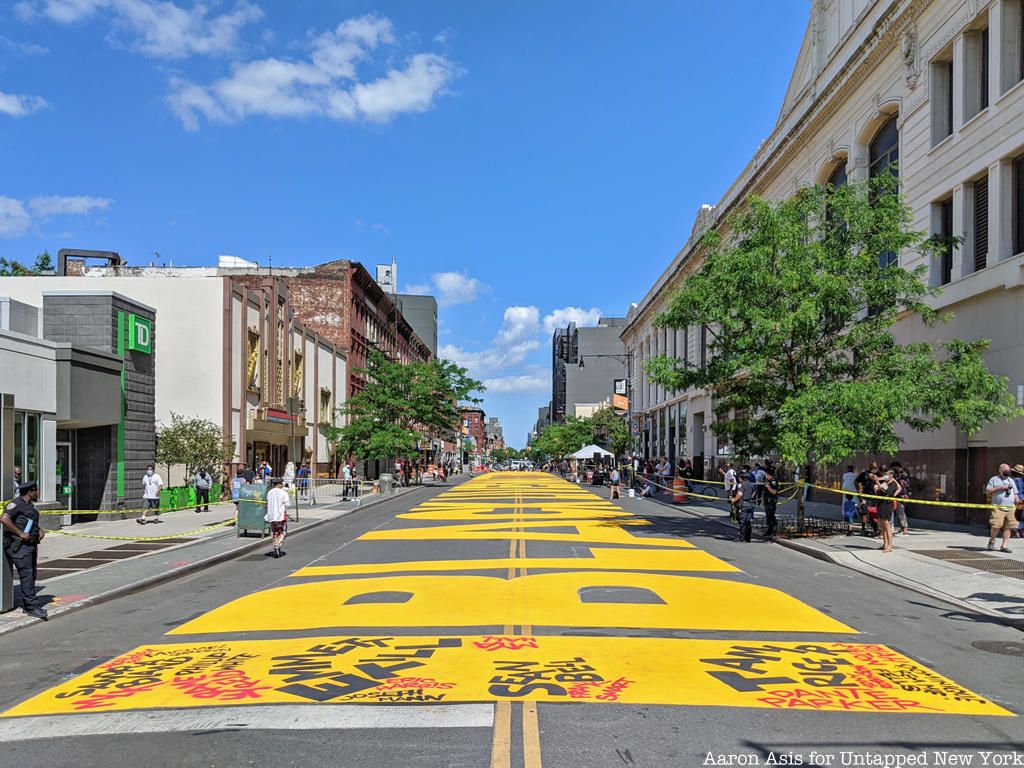
As a holiday commemorating the final declaration of the end of slavery, Juneteenth promotes unity and freedom for all across the world. Over the years, Black Americans have celebrated the holiday with food, dancing, and singing. To celebrate the American Black community through empowerment, health, wellness, education, and entertainment, head to the 12th Annual Juneteenth NYC Festival, taking place from June 18th to June 20th.
Entitled Rebirthing The Roots of Entrepreneurial Excellence, the 12th Annual Juneteenth NYC Festival will host several virtual and in-person events aimed at honoring the holiday’s rich legacy. Over the years, the Brooklyn communities of East New York and Brownsville have played integral parts in building up the Juneteenth Festival since it first began in 2009. The Festival hosted 5,000 individuals in person in 2019 and over 20,000 virtually in 2020.
This year, the Festival will commence with a series of fully virtual programming entitled Health Day-Mind, Body & Soul. The day’s events will be aimed at helping to foster dialogue between participants and professional medical experts on the importance of health and wellness. Some of the panels will include conversations on topics such as cancer and diabetes as leading causes of death within the Black community, and feasible solutions such as cooking, practicing yoga, or engaging in holistic medicine practices.
On Saturday the Festival will continue with its next series of programming, entitled The Juneteenth Culture in the Arts Celebration. Taking place virtually and in-person at Herbert Von King Park, this day’s events will focus specifically on celebrating the Juneteenth holiday, with several performances by community dancers, singers, poets, and griot speakers lending their voices to the cause.
Finally, on Sunday, the Festival will conclude with Youth Pomp, a set of virtual and in-person programming at Bed-Stuy Restoration Corp. intended to celebrate the work of young Black entrepreneurs aged 14-19. Each day’s events will take place from 9 a.m. to 6 p.m. (with an end time of 3 p.m. instead on Sunday) and are free of charge, with pre-registration required online.
2. Enjoy Classic Black Films At The Museum Of The Moving Image
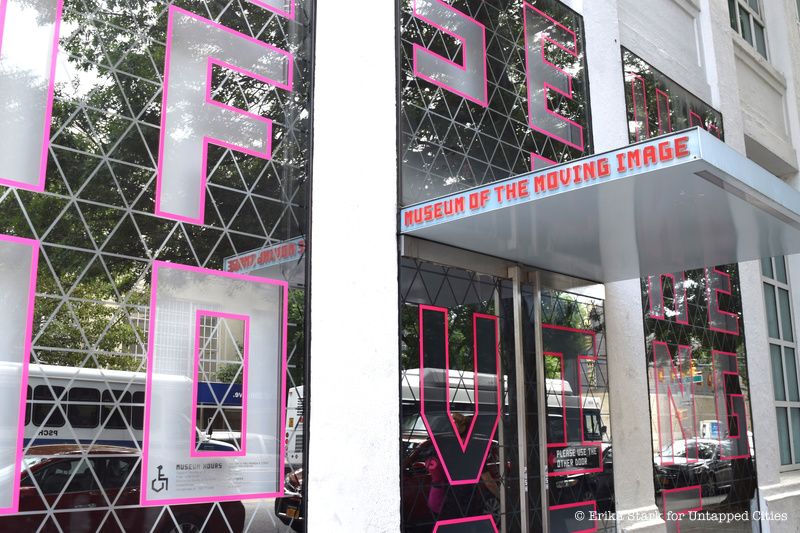
In the United States, there is a long history of Black cinema as a form of creative expression and protest. Over the past 125 years, film has often served as a vehicle for Black Americans to visually showcase their communities’ rich cultural heritage while also highlighting the oppression they have faced. Through critiquing and documenting America’s social change, Black films have consistently reimagined what freedom means in innovative and entertaining ways. In honor of this legacy, the Museum of the Moving Image will be presenting three groundbreaking films on Juneteenth that aim to honor and celebrate what it means to be a Black American.
To begin the day, a series of short films created by young New York City filmmakers which highlight Black history will be shown at the museum’s Redstone Theatre. At 1:00 p.m. the museum will show Channing Godfrey People’s 2020 movie “Miss Juneteenth.” The film dives into the history and legacy of Texas Juneteenth pageant and parade traditions, highlighting the happiness Juneteenth has brought to the Black American community. Following “Miss Juneteenth” is a 3:30 p.m. screening of “Daughters of the Dust” by Julie Dash. Inspired by the story of the Geechee or Gullah people, the movie broke gender, race, and language barriers of the time when it first aired in 1993. Finally, the night will end at 6:00 p.m. with a showing of Spike Lee’s “Do The Right Thing.” Though the film first premiered in 1989, its poignant portrayal of police brutality and rising racial tensions through the lens of a hot summer day in Bedford-Stuyvesant still remains relevant today. Tickets for each movie are available online for purchase, ranging from $9 to $15.
3. Explore The Black Food Scene In Crown Heights and Bedford-Stuyvesant
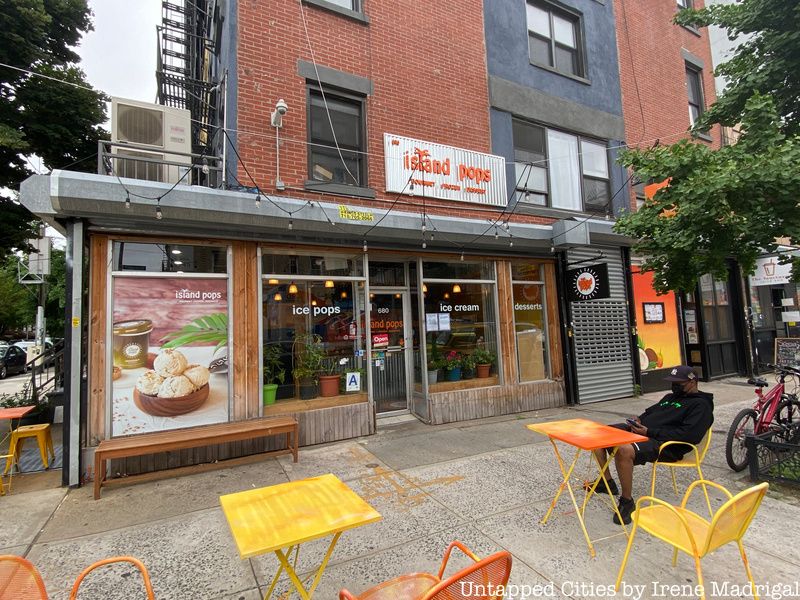
Food has long played an important role in the Black American community, particularly as a means of protest and protection. In the past, enslaved African Americans would often rebel against their subjugation by taking their master’s provisions and raiding the personal larders of white plantation owners. Both during and after slavery, Black Americans often used farming as a means of finding sustenance during difficult times, especially in communities with low access to nearby fresh produce sources. As time went on, the importance of food steeped deeper into the community, becoming an integral component of the Civil Rights Movement, from the famous Woolworth sit-ins to “shoe-box lunches” on trips in protest of Southern restaurants which refused service to Black Americans.
In celebration of Juneteenth and the importance of food in the Black culture, the organization Trivia For Us will be hosting a Juneteenth Food Crawl. Participants will have the opportunity to sample delicious food and boozy cocktails from Black-owned establishments across the Brooklyn neighborhoods of Crown Heights and Bedford-Stuyvesant. Some of the featured venues will include Cake Boi, Island Pop, Savvy Bistro, and Spudz NYC. At each venue, one complimentary food and cocktail item will be provided, with the option available to purchase more with exclusive discounts. In addition, throughout the crawl, participants will have the opportunity to play trivia games on their mobile devices with the chance to win prizes from local vendors. As an ode to Juneteenth, the trivia games will be centered around Black history, pop culture, music, film, television, art, and science. The event will take place from 1:00 p.m. to 7:00 p.m. and is open to anyone aged 21 years or older. Registration online is required in advance with tickets priced at $45.
4. Visit Rashid Johnson’s “Red Stage” at Astor Place
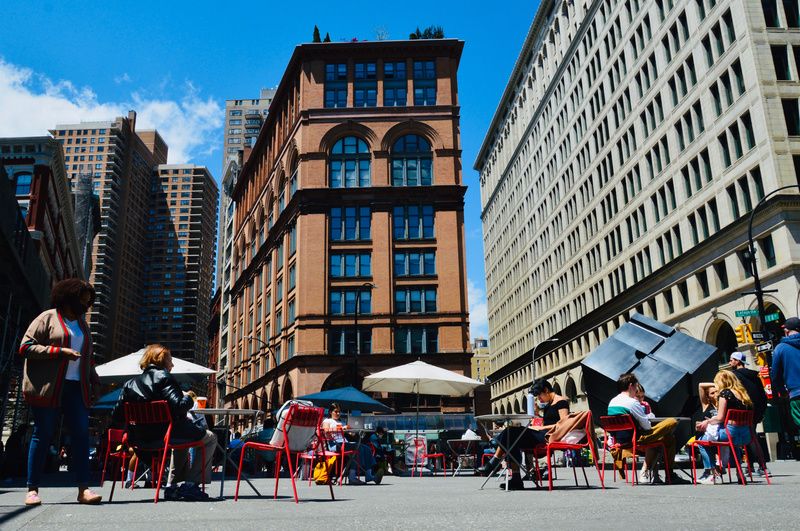
From now until July 4th, 2021, Astor Place—one of New York City’s most historic and iconic plazas—will host artist Rashid Johnson’s Red Stage. The sculpture was created as a public invitation for experimentation and creation after a year fueled by fear and anxiety. At 30 feet wide and painted a bright, urgent red color, Red Stage will be used for various free artist performances and musical events. It will also serve as a space for the public to use their voice in advocacy of social change.
On Juneteenth at the Red Stage, from 10 a.m. to 12 p.m., the Black Painters Academy will be hosting a free painting class, with supplies given to the first 10 arrivals. Specifically, the academy focuses on Black art history, with their Juneteenth class emphasizing the physical elements and objects which surround celebration within the Black community. Later in the day, Joe’s Pub and Make Music New York will present A Juneteenth Celebration, a free live musical event. It will take place from 5 p.m. to 8 p.m. and will feature performances by artists Celisse, Ché Buford, and Mal Sounds. There will also be programming from the Juneteenth Legacy Project, a non-profit Galveston-based corporation that seeks to contextualize Juneteenth as a pivotal moment in the arc of U.S. history and retell the story of its genesis and cultural relevance.
5. Take a Stroll Through Juneteenth Grove in Cadman Plaza
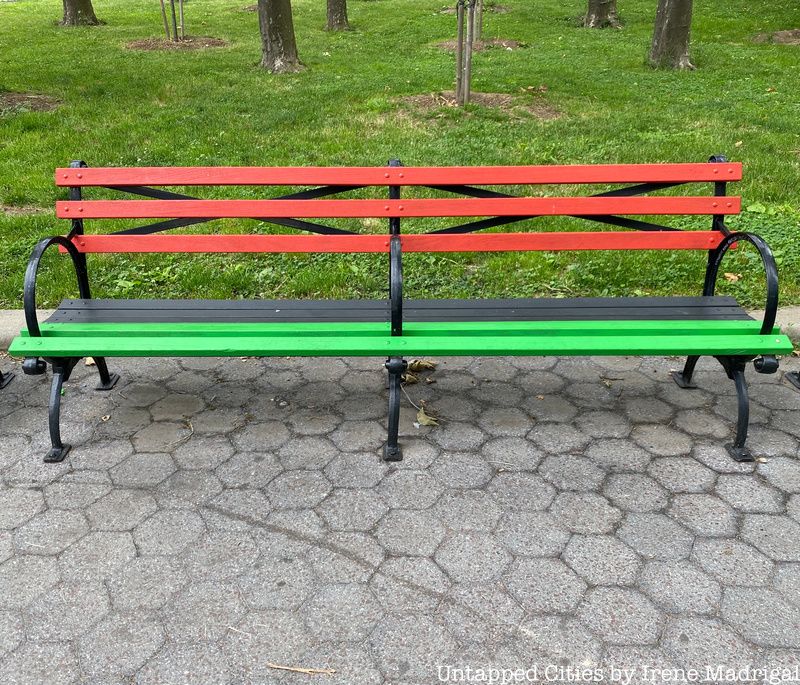
On June 19th, 2020, NYC Parks created Juneteenth Grove, a beautiful floral display within the heart of Brooklyn. Located in Cadman Plaza, Juneteenth Grove was also designed in celebration of the homegoing of George Floyd, Ahmaud Arbery, Breonna Taylor, and other Black Americans who lost their lives to police brutality. The grove came about due to a commitment by NYC Parks to aid in the fight to end systematic racism by taking responsive steps to address related issues within the city’s park system. Last year, NYC Parks began reviewing the names of parks across the city with the goal of renaming a selection in each borough to better commemorate the history and legacy of Black Americans.
Juneteenth Grove consists of 19 flowering plants, which were added to the already existing tree presentation. Flanking the entrance to the park on Tillary Street, the flowers were placed as symbols of life and future prosperity. In addition, the grove features a temporary painting of 19 benches in the colors of the Pan-African Flag. With its breathtaking views and striking connection to one of the most culturally relevant holidays within the American Black community, Juneteenth Grove is the perfect place to spend the holiday outdoors with friends and family.
6. Take Part In The Alice Austen House’s Juneteenth Music and Poetry Celebration
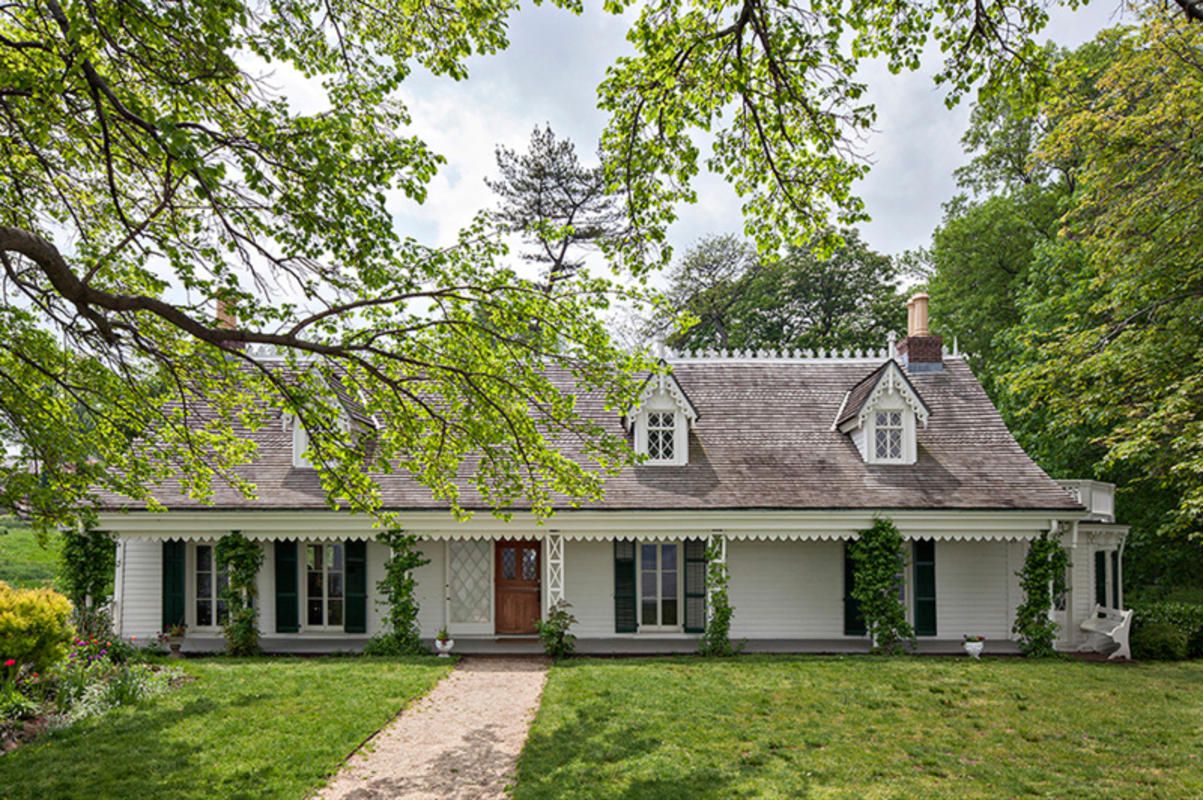
This summer, from May 12th to June 30th, 2021, the Alice Austen House Museum on Staten Island and Worthless Studios will be collaborating as part of the Plywood Protection Project to present an outdoor stage designed by Tony DiBernardo. The stage will host several live performances, free of charge to the public. In commemoration of Juneteenth on June 19th from 1 p.m. to 4 p.m. DiBernardo’s stage will hold featured readings from poets Pamela Sneed and andriniki mattis. In addition, there will be musical performances by OJ in the Yams, Chinese Elife, and Jahtiek Long.
Pamela Sneed is a New York-based poet, writer, performer, and visual artist. She is best-known for her memoir Funeral Diary, which centers around her experiences growing up during the AIDS crisis. This year, she was awarded the Lambda Literary Award for lesbian poetry. Through much of her work, Sneed explores what it means to be an American Black queer-woman. andriniki mattis is a non-binary poet whose work has been featured in a number of publications including Paperbag Journal and Typo Mag.
7. Explore Seneca Village On A Guided Tour
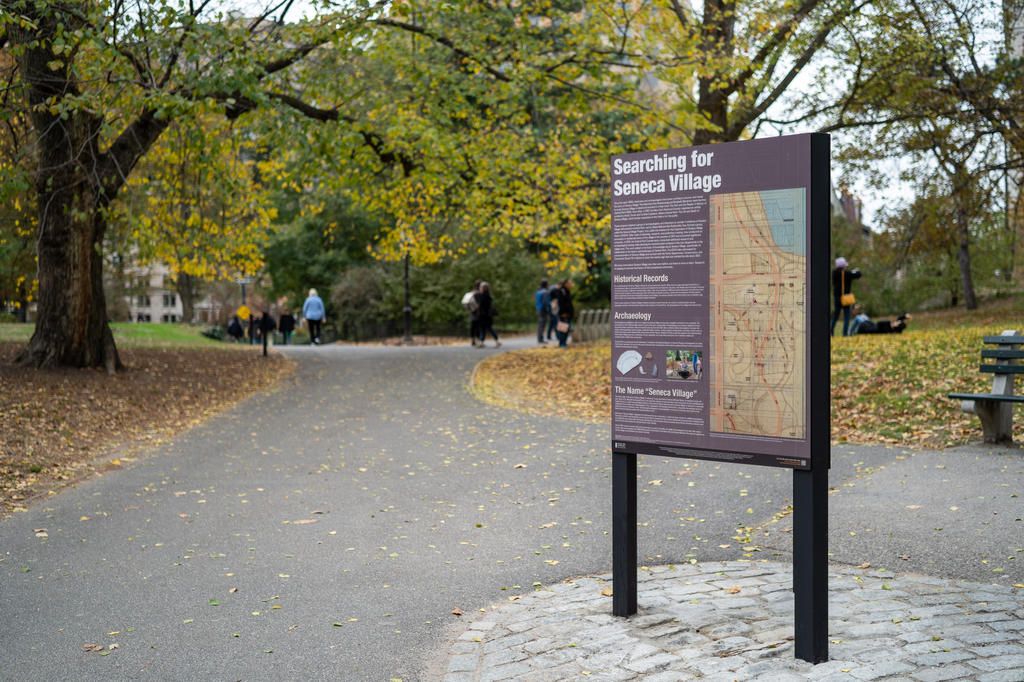
Before the creation of Central Park during the 1850s, there once existed a predominantly African American community on the land known as Seneca Village. Located around what is now the Park’s perimeter from West 82nd to West 89th Street, many of Seneca Village’s residents were property owners, a rarity for African Americans at the time. The Village began in 1825 when Andrew Williams, a 25-year old African American shoe shiner, bought three lots of land from John and Elizabeth Whitehead for $125. Later, store clerk Epiphany Davis bought a further 12 lots for $578, with the AME Church purchasing six more. Immediately after, the first houses were built on the land, with around 10 homes in the Village by the 1830s.
Over the years, the community continued to grow, comprised of 50 homes and three churches with around 255 residents during the height of its occupancy in the 1850s. As an isolated enclave separated from the bustling Manhattan community below it, Seneca Village gave African Americans the opportunity to live relatively autonomously away from discrimination they faced from white Americans. As a result, African American residents of the Village were more prosperous than their peers, with half owning property by 1855. In the end, Seneca Village’s land was acquired by the City through eminent domain for the building of Central Park.
To learn more about Seneca Village’s rich history and relevance to New York City residents today, the Central Park Conservancy will be hosting guided tours of its remaining grounds this Juneteenth. During the tour, visitors have the opportunity to explore the physical landscape of Seneca Village which still exists in Central Park. Archeologists have located the foundation walls and cellar deposits of William Godfrey Wilson’s house and a deposit of items from the homes of two Seneca Village residents. Overall, archaeologists have found 250 bags worth of artifacts, including the leather sole of a child’s shoe. Guided tours of the Village will be available at 11 a.m. and 2 p.m. Tickets are $10 for members of the Central Park Conservancy and $15 for everyone else. The duration is around 90 minutes.
8. Virtually Participate In The Schomburg Center’s Annual Literary Festival
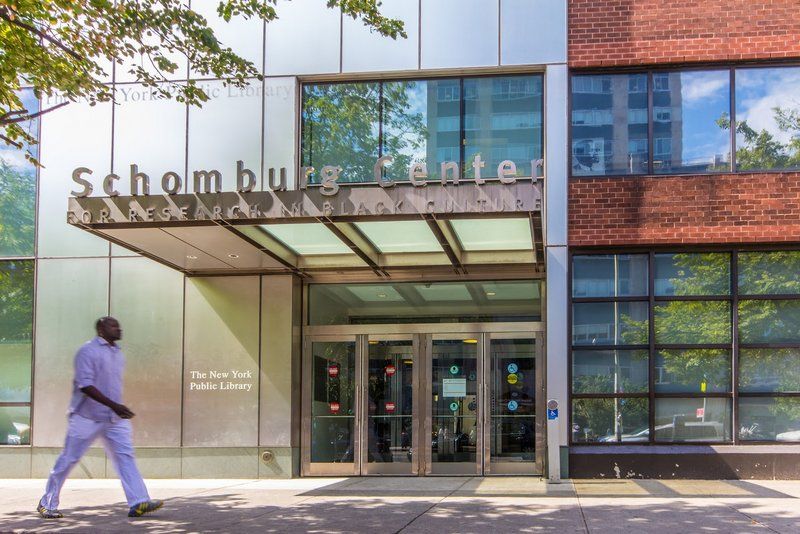
From June 14th to June 19th, The Schomburg Center for Research in Black Culture is hosting its annual Literary Festival. This year, the all-virtual event will champion authors of African descent from across the globe and publications that prioritize Black history and culture. Programming for the festival will include activities for individuals of all ages.
In honor of Juneteenth’s cultural importance to the Black American community, The Schomburg Center’s programming for that day entitled Words Like Freedom will highlight a stunning lineup of authors whose fiction, non-fiction, and poetry celebrate the presence of freedom in our everyday lives. Throughout the day, the work of past and present authors will be read, discussed, and placed in context within American society today. Some highlights will include readings of “Prayer for the Living” by Ben Okri, “Let My People Vote” by Desmond Meade, and “One Drop One Drop: Shifting the Lens on Race” by Yaba Blay. The event’s closing program will include the work “Little Devil in America: Notes in Praise of Black Performance” by Hanif Abdurraqib in conversation with Dawnie Walton. The event will begin at 10:30 a.m. and ends at 4 p.m with advance online registration required.
9. Head to Brooklyn Heights for the Official Launch of Brooklyn Resists
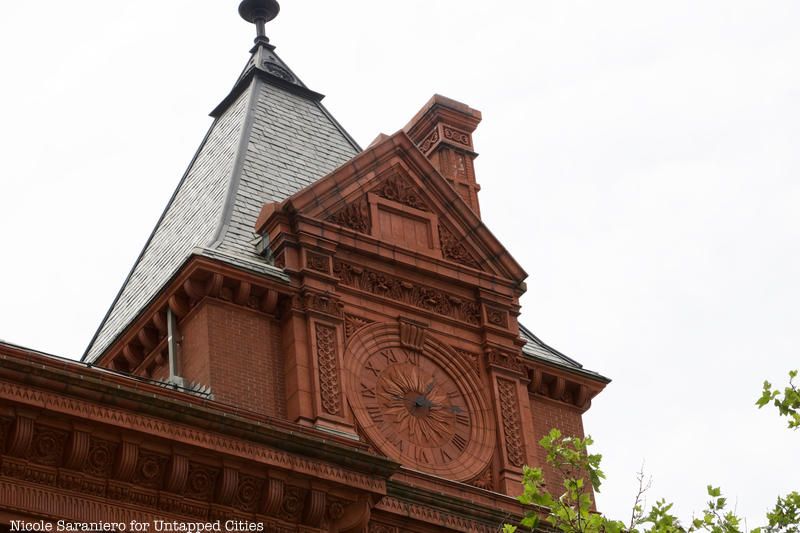
On June 19th, the Brooklyn Public Library’s Center For Brooklyn History (CBH) will launch Brooklyn Resists, an ongoing multifaceted public initiative exploring Brooklyn’s history of racial protest from abolition to the present. Brooklyn Resists aims to tell the story of the fight against racial injustice from the lens of Black Brooklynites and their allies who over the years have laid their lives on the line in pursuit of social justice reforms.
The launching of Brooklyn Resists will include the opening of an outdoor exhibit at CBH’s 128 Pierrepont Street building. It will be projected onto the building’s wall and will feature historic texts and images from CBH’s archives interspersed with new photographs from the 2020 Black Lives Matter protests. In addition, an online version of the exhibit will include additional content for readers, including exclusive photographs, oral histories, and historic documents. The exhibit will open for display at 3 p.m. and will remain up through September 30, 2021.
10. Celebrate Black Food Culture at Weeksville Heritage Center
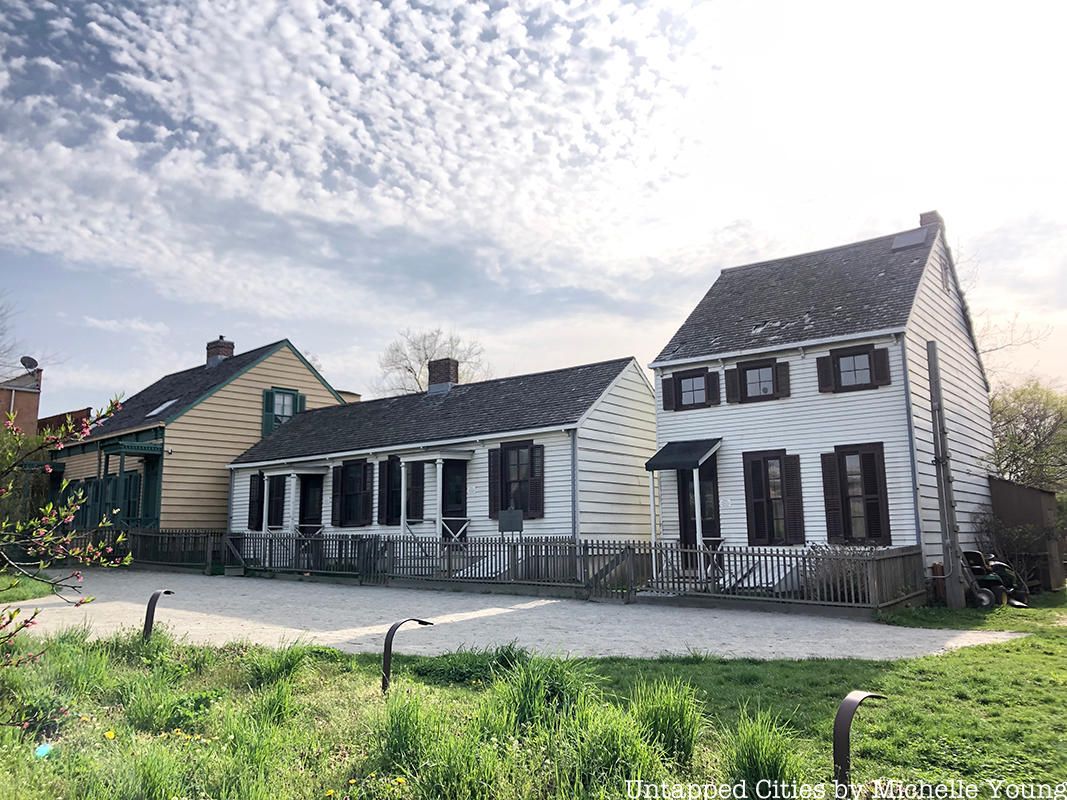
As an integral component of the Black American community, food has continually brought people together in conversation with one another. Through strife and systemic injustice, food has remained a constant within the community, giving Black Americans the strength they needed to oppose the biased systems set before them. As an ode to this, the Weeksville Heritage Center in Brooklyn will be hosting Meals as Collective Memory on June 19th. As a free interactive event, Meals as Collective Memory will celebrate Brooklyn’s Black food culture. Some featured activities will include a cooking class with Weeksville’s neighbor Lakou Cafe on dishes for July 5th, Independence Day For Black New Yorkers and a joint discussion between Tonya Hopkins and Dr. Jessica B. Harris on Black foodways across the African diaspora.
Overall, Meals as Collective Memory will focus will be on generating conversations surrounding topics ranging from the role of community fridges during the global COVID-19 pandemic to the current concept of the kitchen as a place of refuge. Meals as Collective Memory will begin at 12:30 p.m. and end at 4:00 p.m. Online registration is required in advance.
11. Walk Through The Newly Dedicated “Juneteenth Way” In Prospect Park
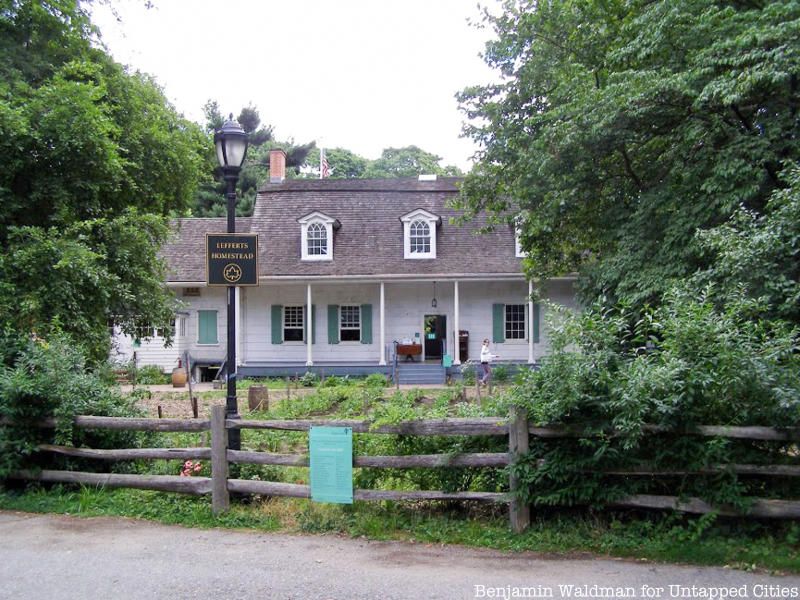
This Friday, Prospect Park Alliance and NYC Parks will mark the groundbreaking of the start of a $2.5 million restoration project of the Lefferts Historic House. As part of Juneteenth, land across from the Lefferts Historic House will be dedicated as Juneteenth Way. This dedication is part of the NYC Parks Renaming Project, which aims to rename select New York City parks in honor of Black leaders, an initiative led by outgoing NYC Parks Commissioner Mitchell Silver. The project first began in 2020 with the creation of Juneteenth Grove in Cadman Plaza, later growing in size with the renaming of 10 parks on Black Solidarity Day. Through May 15, 2021, individuals had the opportunity to suggest Black leaders they wished to be included, with the chosen names planned to be revealed to the public on June 19. As part of the dedication of Juneteenth Way, interpretive signage and a series of benches painted in the colors of the Pan-African Flag will be added to the area.
Finally, the event will feature the unveiling of Jamel Shabazz’s “Prospect Park, My Oasis in Brooklyn,” a site-specific installation of works presented in partnership with Photoville. Through a series of photographs taken in and around Prospect Park over the last 41 years, Shabazz showcases how individuals have used the park as a way to embrace nature away from the bustling city. Some of the featured images include snapshots into reunion picnics, musicians, races, and dog walks.
12. Head To The World Trade Center For a Performance From The Unsung Collective
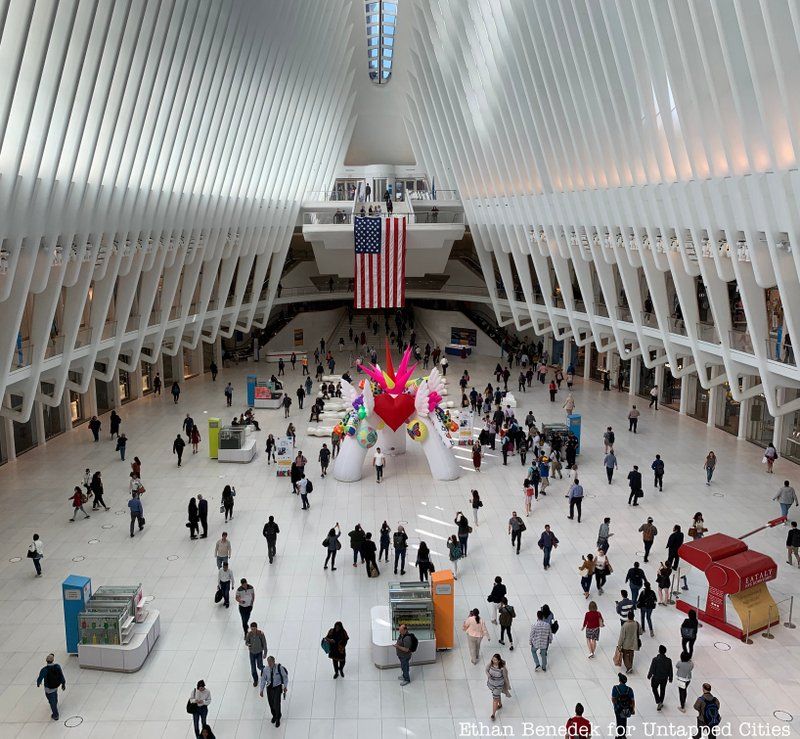
For the upcoming summer season, The Port Authority of New York and New Jersey, in collaboration with Westfield and other community partners, has planned a series of festivities at the World Trade Center Campus. Visitors to the Center this summer will be able to enjoy exciting musical performances, food bazaars, art installations, and colorful lighting displays.
On June 19th, The Unsung Collective, a New York City-based choir and opera ensemble composed of people of color, will perform four pieces of classical music by Black composers. The performance will take place on the main floor of the Oculus from 1:00 p.m. to 2:00 p.m. and will celebrate countless stories from the Black community. In addition, the Oculus will also be lit in red, black, and green. This will serve as a commemoration of Juneteenth Day in honor of its first year as an official state holiday in New York and New Jersey.
Next, check out 33 Black History Sites To Discover In NYC!


